
The United States is going to deploy troops in 35 countries in Africa. The 2nd Brigade of the 1st Infantry Division of the U.S. will start training in March of 2013 to make active preparation for the military deployment. What are the hidden motives behind the United States' high-profile surge of troops in Africa?
The first motive is to continue the "forward deployment" for the anti-terrorism strategy so as to constantly improve its anti-terrorist encirclement. As clearly pointed out in the U.S. National Counter-Terrorism Strategy published in 2011, despite the death of Osama Bin Laden, the "al-Qaida" organization and its branches are still active rampantly in Africa. In order to bridge gap of the "crack region" of the non-traditional security threats as soon as possible, the United States feels the pinched need to deploy troops in multiple African countries and establish more anti-terrorism forward operation bases in a bid to eventually form closed anti-terrorism encirclements worldwide.
The second motive is to enrich the military strength of the U.S. Africa Command (AFRICOM) and to lay down a solid foundation for it to promote "democratic values" and intervene into African affairs. Through the strengthening of military deployment in Africa, on the one hand, the AFRICOM in Stuttgart, Germany, can better perform its remote command functions, elevate its ability to conduct independent military operations and squeeze out the space of the traditional powers in Africa held by other Western countries, represented by France. On the other hand, it can also help provide a strong military backup support for promoting the so-called "democratic values" and fostering pro-American regimes.
The last but not the least is to control strategic resources and expand the African market. In recent years, U.S. dependence on the strategic resources in Africa has shown signs of continuous increase so much so that it even considers the oil in Africa as its "strategic national interest". It is predicted that by 2015, 25% of the oil needed by the U.S. will come from the sub-Saharan regions of Africa, exceeding the U.S. oil import from the Middle East. The U.S. strengthened military presence in Africa will help to ensure the safety of the supply lines of these strategic resources.
In addition, the U.S. is also drooling over the broad market in Africa. In June of 2012, the Obama administration announced the U.S. strategy in sub-Saharan Regions of Africa, which specifically emphasized the strengthening of trading in Africa. In the U.S. perspective, strengthening its military presence in Africa is also a necessary measure to protect the development of its economic and trade relations with Africa and to tap the potentials of the African market.

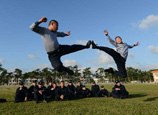
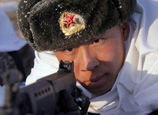
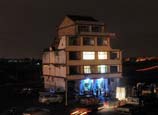
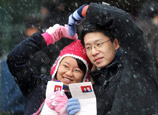
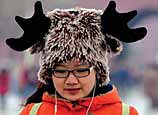








 China sees coldest weather in 28 years
China sees coldest weather in 28 years


![]()
